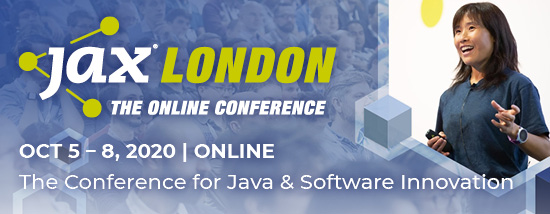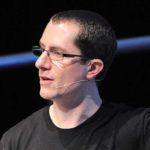A research study by The National Center for Women & Information Technology showed that “gender diversity has specific benefits in technology settings,” which could explain why tech companies have started to invest in initiatives that aim to boost the number of female applicants, recruit them in a more effective way, retain them for longer, and give them the opportunity to advance. But is it enough?
Two years ago, we launched a diversity series aimed at bringing the most inspirational and powerful women in the tech scene to your attention. Today, we’d like you to meet Angelica Hill, Associate Product Manager at The New York Times.
Today’s Woman in Tech: Angelica Hill, Associate Product Manager at The New York Times
 Angelica is an Associate Product Manager at The New York Times in New York City, overseeing the backend platform infrastructure of NYT newsletters, emails, and push notifications. She has a Masters from the Journalism School at Columbia University, as well as a BA in Drama and English from Queen Mary’s University, London. Before that, Angelica graduated from the Acting Foundation Course of the Royal Academy of Dramatic Arts.
Angelica is an Associate Product Manager at The New York Times in New York City, overseeing the backend platform infrastructure of NYT newsletters, emails, and push notifications. She has a Masters from the Journalism School at Columbia University, as well as a BA in Drama and English from Queen Mary’s University, London. Before that, Angelica graduated from the Acting Foundation Course of the Royal Academy of Dramatic Arts.
When not working in Go, organizing GDN (Google Developer Network Events), or other events in the Go community, Angelica encourages others to dive into software engineering – no matter their background, or where they are in their professional journey. She is a fierce advocate of diversity at work.
When did you become interested in technology?
I grew up in a diplomatic family, moving between different Embassies every few years. My childhood was spread across three continents, including years at boarding school. Technology meant that this was a very different experience than it might have been for previous generations – e-mail, social media and then Skype shrinking distances and eliminating any sense of dislocation or distance. Tech meant that I always felt supported.
We’ve seen over the last year during covid, the degree to which technology has transformed communication and relationships. At best, technology can bring people together, spread knowledge and really improve lives. Distance becomes irrelevant. For all the talk of fake news and cyber attacks, we should never forget just how much of a positive tech represents.
As I grew up, my ambitions changed. I wanted to be an actor, then a journalist. I spent time interning at the BBC, The Times, and Al Arabiya News Station in Dubai. Finally, after an amazing summer internship at the New York Times, my ambitions switched to Product Management and Technical Product Management but within the media. I do still draw upon all the lessons and skills I learnt at acting and journalism schools.
It did take me a while to really immerse myself in the technical side. It is intimidating to outsiders, even ones with not a little self-confidence. I was fascinated by the work of the Software Engineers at the NYTimes, but it wasn’t until the start of 2019 that I enrolled in a 3 month, twice a week, after work class for non-developers at the Product School. I wanted to better understand the technical debates that were taking place around me between the engineers I was working alongside. I also wanted to gain a greater degree of credibility with my tech partners.
Long story short – I began a journey of exploration and was increasingly caught in the gravitational force of a whole new world. With the help of many mentors, I gained the enthusiasm of the converted and was especially taken with the simplicity, the elegance, of the Go programming language. By the end of 2020, I was delivering a keynote speech at GopherCon 2020, hosting global GDN (Google Developer Network) events, and joining the ‘Go Time’ Podcast team as a permanent panelist. I love it – but I am also quite clear that it makes me much better at my day job. I can engage my programming team in a way that would be impossible without a proper understanding of their challenges and capabilities.
We live in an age of digitalization and innovation. Understanding and leveraging emerging technologies is key to playing a full part in today’s business world, arguably in today’s world more broadly. It is too important to leave to the data scientists and programmers. We all need to engage. We all have the opportunity to ride this wave, and see where it takes us. If I understand technology better, the result will eventually be a better experience for the NYTimes readers.
Understanding and leveraging emerging technologies is key to playing a full part in today’s business world, arguably in today’s world more broadly.
How did you end up in your career path?
As mentioned above I have pivoted a lot in my career ambitions. it’s been far from a linear progression, although each twist and turn has left me better equipped for the next challenge. My guiding principles and values have however remained constant:
- Is this something that has the potential to make a positive impact in the world?
- Is this the working culture and industry I want to be in?
- Do I see myself continuing to be excited by, and challenged by this career in the long run?
- Can I be the best in this field?
I loved the creativity and the emotional challenges of acting. At best, theatre can help audiences see the world in a new light and empathise with quite different perspectives. Theatre is a supremely collaborative art. But the realities of being a working actor involve a lot of time alone, a lot of instability, and to be honest – a lot of rejection. It taught me self-confidence to go onto a stage but, more importantly, it taught me resilience.
So when I studied English Literature and Drama at Queen Mary’s University, London, I found myself drawn increasingly to media, ending up as the editor of the University magazine. I found that I both loved and had an aptitude not only for writing but for managing a team.
Journalism was a professional that ticked all the boxes in terms of intellectual stimulation and impact. I had no doubt of its import, particularly as the pernicious influence of fake news and social media manipulation became increasingly clear. I was lucky enough to be accepted on the Masters in Journalism course at Columbia University – widely considered to be the best graduate journalism school in the world.
That coincided with my being accepted onto the NYT summer internship program in 2016, which – without exaggeration – changed my life. I loved the NYT – the culture, the buzz, the people, the mission. It ticked all my boxes. I joined the business side during the internship and was lucky to be brought under the wing of one of the most inspiring female role models I’ve ever met. I was sold on Product management and digital innovation. I know that this was where I could add the most value and really fulfill my full potential. Product Managers are challenged by different and ever-changing products, working in a space that is constantly progressing and innovating. You can never know everything, and will always need to learn.
I am only three years into my working life. I know that the world evolves so quickly that it would be madness to say that there will be no further career shifts. But, for the foreseeable future, Product Management seems sure to provide the challenges and opportunities I want and need. I have already seen a shift in my focus since joining the Times, from user facing products, working extremely close to journalists in the newsroom, to working on more technical products, back-end platforms, working extremely closely to software engineers, diving deeper into the technology.
Did you receive support from your family and friends? Do you have a role model?
Three people have shaped my professional life, all encouraging me to follow my passions, work hard, and never give up. All three have a passion for what they do, are open to learn, and are willing to admit mistakes.
Erin Grau was my intern supervisor at The New York Times in 2016. She was the Head of Digital Operations. She opened my eyes to the possibility of Product Management being a path for me, and coached me into my current job at The New York Times. She is a fierce advocate for diversity and equality in the company; and an astonishingly good mentor, especially for women (who can sometimes lack the natural self-confidence to assert their views in male-dominated workplaces). She taught me not to second guess myself and to not let impostor syndrome ever get in the way. She also showed me that being a powerhouse at work doesn’t mean you can’t be a mother and have a happy, healthy family life. It’s hard, but it can be done.
My current line manager joined The New York Times from Amazon nearly a year ago as a Senior Technical Product Manager. He taught me a different set of skills and ways to be effective at work while still demonstrating empathy and support for the team. He helped demystify the nuances of cross-team and stakeholder communication and management. He treats me with respect as a peer – I am excited to see what I learn from him in the years to come.
I know that it’s a cliché, but my father has probably had the greatest impact as a role model. When I turned 18, he gave me three pieces of advice that I still try to live by:
- Things are never as bad, or as good as they first appear. There will be ups and downs – but the peaks and troughs always even out. Just think very carefully about anything that could be irreversible. A single decision can sometimes change the direction of your life forever – good or bad.
- Be yourself. Sounds trite but it’s not always easy. Conformity can take all sorts of forms. You need to be ambitious and never settle.
- Try to do the right thing. This is the most difficult. You won’t always manage this one. But do your best to do what you know is the right thing, even if it’s not to your advantage. You will like yourself more and it’s what differentiates the special people. Be kind.
Did someone ever try to stop you from learning and advancing in your professional life?
I have been very lucky to have been surrounded by supportive friends and family. I’ve always had people around me to help me overcome the inevitable hurdles that life puts in our path. But we all face differing opinions and perspectives.
When, still early in my career at the NYT, I first started taking classes outside work and upskilling on the technical side (as a liberal arts graduate with very little foundational knowledge), one of the senior Product managers warned me not to invest too much time in learning the technology, the software engineering side. They noted that I was a Product Manager and not an Engineer. Technical conversations with the team were not critical to my job. I was confused and harboured doubts – I was enjoying learning and was convinced that this new facet to my professional armoury was improving my working relationship with my engineering team. It felt like the right approach but I respected the senior (and successful) product manager too much to dismiss their guidance outright.
But, with the support of others around me, I persevered. That led to many wonderful opportunities, learnings and growth, as well as making me better at my job. They may not have been wrong for their own career, but the context changes – technology is central to everything we now do and a deeper, less superficial, understanding translates to better business decisions.
If we don’t see ourselves reflected in those we see as successful in the industry it’s a huge deterrent.
A day in Angelica’s life
I am currently an Associate Product Manager on the Mercury Messaging team at The New York Times. We are a team made up of back-end developers working on maintaining and improving our messaging platforms for transactional and editorial email, as well as push notifications. Our mission being to empower our internal users to personalize and innovate their messaging, get a holistic insight into what messages our readers are getting. Building the necessary infrastructure in our push and email channels to deliver the right message, to the right consumer, at the right time. I’ve been at The New York Times for nearly three years, and have worked in the email and messaging space for the majority of my time at the company.
There is not really a typical day, it can differ wildly depending on the time of year – are we coming up to, within, or just finishing planning – as well as what projects I am overseeing at that time – a new feature being built out, architectural change, or data migration. High level, my day to day is meetings, both with my fellow team leads, the whole team, as well as with external teams and out teams stakeholders. A lot of my job is communicating, listening, and understanding the needs of our internal users, and our New York Times users, so as to map out how to address the problems in the most efficient and effective manner.
What are you most proud of in your career?
Working at the New York Times. It is the most outstanding news organisation in the world at a time when reliable probing news is as important as it has ever been. I feel privileged to be part of it, not least for the voice it expressed during the Trump Presidency years when news was so often under assault. I am excited by the digital journey we have travelled over the last years, as online news has overtaken hard copy, and to be part of the next chapter. I really cannot imagine working anywhere else.
I guess I’m also proud of making a success of living in New York, far from my family and friends. Again, I now can’t imagine living anywhere else.
Why aren’t there more women in tech?
Imposter syndrome is a huge factor in this. Women being told for so long that technology is not the industry for them. The fact that typically women will not apply to or accept a job they don’t think they are already qualified and ready for, whereas men will say yes, and be far more comfortable learning on the job. I also think it comes down to the stereotypes that the tech industry elevated for so long of the young, hoodie wearing man, hood up typing away on his laptop, large headphones in.
If we don’t see ourselves reflected in those we see as successful in the industry it’s a huge deterrent.
Could you name a few challenges (or obstacles) women in tech face?
The first thing I’d like to say is that I believe it’s getting better, and at The New York Times there are a good number of wonderful women in tech roles, however not enough – as is the case at many companies – at the highest levels (although we did just get a female CEO so there is hope).
The other thing that I have found, even at my young age, is the pressure I see some new mothers feeling as they leave the workplace for maternity leave, and then come back and try to juggle both being a mother and a full-time employee. I acknowledge that this is a struggle all new parents, male or female go through, however, I see it being especially hard on the mothers.
Less of a challenge and more of an annoyance, as a woman in tech people still “mansplain” a lot of things to you, especially if – like me – you walk into a room of hoodie-wearing male engineers in a pink blouse and heels as a Product Manager. It’s got much better but I often find myself in meetings where male colleagues will be explaining a technical concept and then turn to me directly – often as the only women in the room – and explain what they mean in “simple terms” to ensure I understand. It comes from a good place, making sure I understand everything, however it does make me wonder why it is always me they turn to clarify.
Would our world be different if more women worked in STEM?
Yes, without a doubt. I believe we would have a more empathetic industry, with a higher level of effective interpersonal communication. I also believe that it would add a level of intellectual diversity to problem solving, opening the industries eyes to a wider range of perspectives, and therefore use cases, and ways to address the issues. As with the diversification of any industry I have no doubt it would have nothing but positive social, economic, and cultural implications.
The discussion about diversity is gaining momentum. How long will it take to see results from the current debate?
The Tech Industry still has a long way to go. There needs to be a new layer of transparency as to what the issues are, as well as crowdsourcing the answers together, and following through with Action Items.
Until companies begin being open and acknowledging the issue we will be unable to make substantial, meaningful progress.
What advice (and tips) would you give to women who want a tech career?
Get over the imposter syndrome. Be honest with those giving you opportunities about your skill level and what you believe you can bring to the table, and then dive in 110%.
Keep learning, but not just from those in your specific field. Learn from everyone working in related disciplines: whether it’s design, engineering, marketing or project. And don’t forget to listen to the journalists and editors — they are at the heart of what we do.
More Women in Tech:
- Women in Tech: Julie Shamji, Business Solutions Architect and consultant at Unisys
- Women in Tech: Emilie Gieler, Vice President of Platform & UX at Akeneo
- Women in Tech: Shani Gale, Director of Product Management at Snyk
- Women in Tech: Marie Godfrey, SVP of Products at Flexera
- Women in Tech: Hiral Patel, Founding engineer at Diamanti
For even more Women in Tech, click here
The post Women in Tech: “At best, technology can bring people together” appeared first on JAXenter.
Source : JAXenter

























